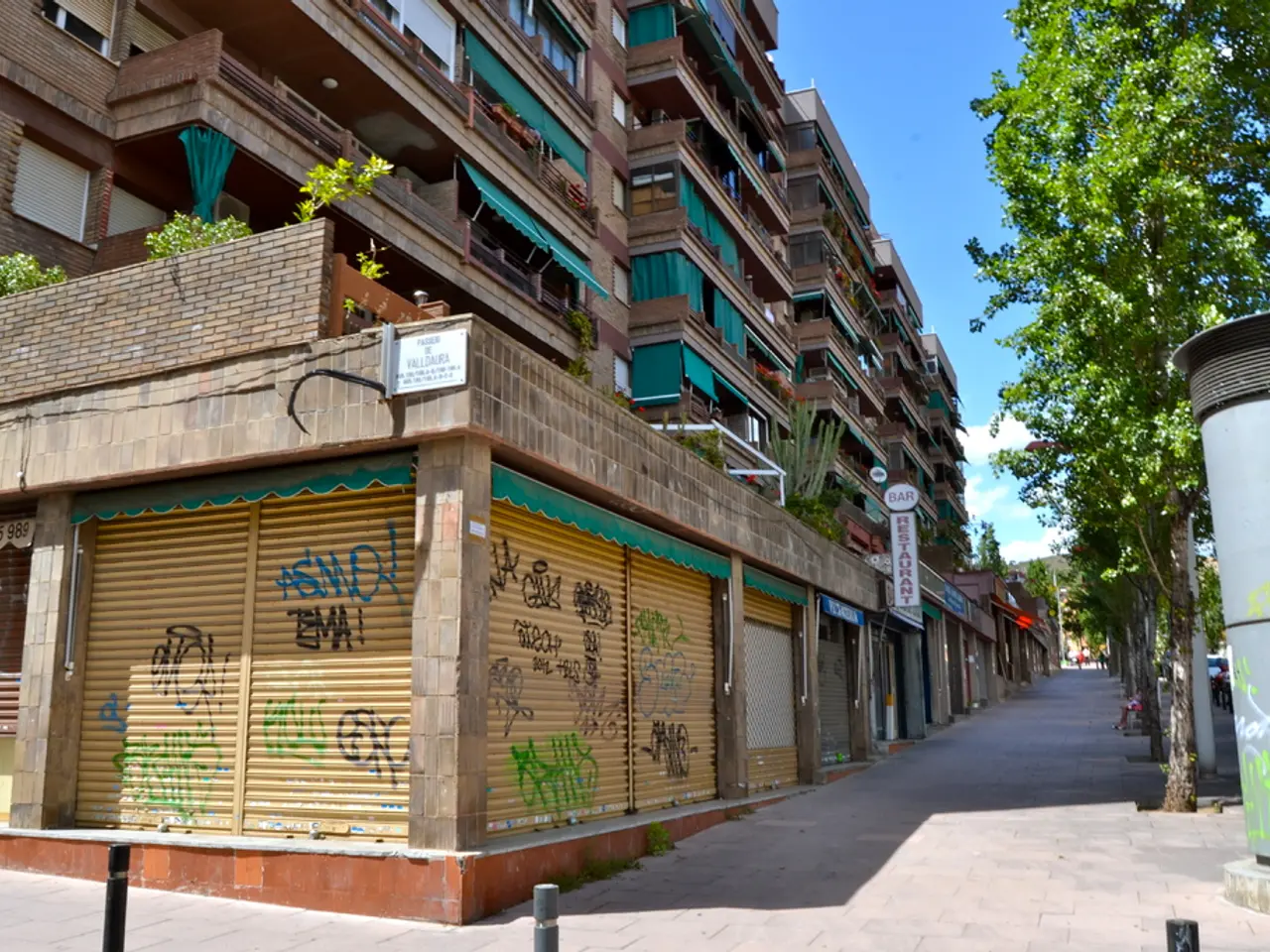City economy centered on eco-friendly practices
Astana, the capital city of Kazakhstan, is embarking on a green transformation, focusing on sustainable public transport, waste management, and cycling infrastructure. This shift aims to create a more eco-friendly, convenient, and safe urban environment for both businesses and residents.
Waste Management
Astana is investing in advanced waste processing technologies, particularly in industrial waste recycling. One notable example is a refinery that employs an electrochemical purification process, reducing unnecessary emissions and waste. This innovative approach not only minimises environmental impact but also creates economic value through the recovery of valuable metals like gold and silver [1].
Kazakhstan's broader carbon market reforms also aim to eventually include waste management sectors, reducing emissions and attracting private investments. Supported by systems like monitoring, reporting, and verification (MRV) and voluntary carbon units aligned with international standards, this move positions Kazakhstan as a leader in sustainable waste management [3].
Sustainable Public Transportation
While specific details about Astana's public transportation innovations are not yet readily available, regional urban transformation discussions highlight the importance of enhancing public transport systems and reducing car dependency [4]. Kazakhstan's focus on building more sustainable and inclusive urban infrastructure likely reflects these insights.
Cycling Infrastructure
Sustainable urban development often prioritises cycling infrastructure to reduce emissions and improve quality of life. Although detailed information on Astana's cycling infrastructure is scarce, the city has seen the introduction of e-scooters and bicycles, offering convenience and mobility [5]. However, the infrastructure is developing but lacks logical continuity or connectivity of cycling routes, creating challenges for cyclists.
Impact on Business and Residents
For businesses, eco-friendly waste recycling turns industrial byproducts into profitable resources while lowering environmental compliance costs and positioning companies within evolving carbon markets that encourage sustainable practices [1][3]. For residents, improved urban transport and potential cycling infrastructure contribute to reduced air pollution, better accessibility, and healthier lifestyles, enhancing overall well-being.
Future Developments
Astana is developing a Concept for managing all types of waste, excluding radioactive waste, for 2025-2035. A National Center for Waste Management and Disposal is proposed to ensure a unified and coordinated approach to waste recycling throughout the country.
A city dendroplan, an interactive digital map of green spaces, is proposed to educate residents about the benefits of trees in reducing noise levels, saving water, and cleaning the air. The trend in modern cities is the increase in the share of public transportation and micromobility, and the strengthening of traditional infrastructure, particularly ensuring safety and increasing green zones in cities.
As Astana continues to evolve, it's crucial to prioritise a systematic approach to the development of cycling infrastructure, as emphasised by Alina IMAMBAEVA. This approach should include clear zoning, priority to safety, and connectivity of routes. The growth of cycling communities and feedback from citizens will be instrumental in improving the cycling infrastructure in Astana.
References:
[1] World Bank. (n.d.). Kazakhstan: Greening the Economy. Retrieved from www.worldbank.org/en/country/kazakhstan/publication/Kazakhstan-Greening-the-Economy
[2] Astana. (n.d.). Greening Astana. Retrieved from www.astana.gov.kz/en/greening-astana
[3] International Carbon Action Partnership. (n.d.). Kazakhstan's Carbon Market. Retrieved from www.icap.org/country/kazakhstan
[4] World Bank. (n.d.). Urban Transformation in Central Asia: Enhancing Competitiveness and Sustainability. Retrieved from www.worldbank.org/en/region/eca/publication/urban-transformation-in-central-asia-enhancing-competitiveness-and-sustainability
[5] Astana. (n.d.). E-scooters and Bicycles in Astana. Retrieved from www.astana.gov.kz/en/e-scooters-and-bicycles-in-astana







